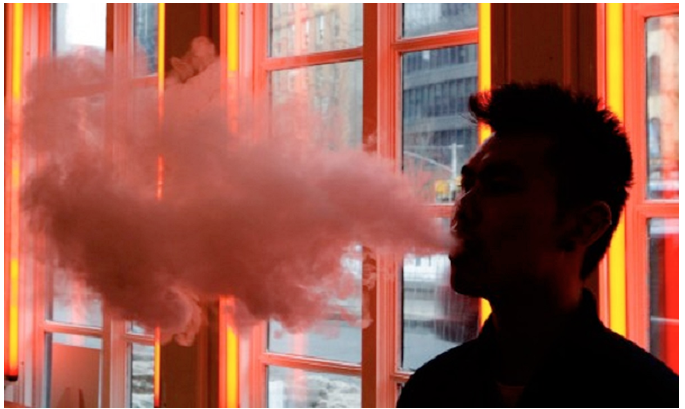CommentsTHIS IS WHAT I KNOW--As we race towards November 8, it’s easy to forget we have a tome of ballot initiatives to read through before filling out the Vote by Mail ballot next month or arrive at the polls. We are unlikely to get an onslaught of presidential campaign ads that those in the swing states might see but we are getting hit by ads against Prop 56, which would increase cigarette tax by $2 per pack, with an equivalent increase on other tobacco products and e-cigarettes that contain nicotine.
If passed, the tax increase would boost existing healthcare programs and would also be used for prevention and control programs, as well as research for tobacco-related disease research and law enforcement. Other programs that would benefit would be University of California physician training, dental disease prevention programs and administration. Revenues would be excluded from Prop 98 funding requirements. The Passed in 1988, the Mandatory Education Funding Bill requires a defined percentage of the state budget be used for public education.
The state’s legislative analyst and director of finance estimate that the bill would increase net state revenue by between $1 billion and $1.4 billion, with potentially lower annual revenues over time.
Opponents to the proposition, as the numerous ads running against Prop 56) claim Prop 56 throws money at “special interests,” i.e. insurance companies. I did a bit of digging to see who is paying for those ads, as well as who is supporting the proposition and here’s what I found.
Prop 56 is sponsored by the American Cancer Society Cancer Action Network, American Lung Association in California and the American Heart Association. The proposition is supported by dozens of nonprofit organizations, including California Medical Association, California Dental Association and California Hospital Association. The opposing organizations? Take a guess. Philip Morris USA Inc. and R.J. Reynolds Tobacco Company. That’s it.
Tobacco costs California taxpayers $3.58 Billion each year in tobacco-related healthcare costs and each year, tobacco causes more deaths than guns, car accidents, HIV, alcohol and illegal drugs combined. Big Tobacco (Philip Morris and R.J. Reynolds) have made billions in profits from California and are figuring out ways to attract new smokers, such as e-cigarettes and vaping. They’re trying to protect their turf, which is why they’ve spent millions to defeat Prop 56.
Instead of dipping into the wallets of nonsmokers to the tune of about $413 per household, Prop 56 would tax tobacco users to fund existing programs. According to the U.S. Surgeon General, increasing tobacco taxes reduce teen smoking. This year, an estimated 16,800 California teens will start smoking and a third of those will eventually die from tobacco-related diseases. In every state that has raised cigarette taxes by a significant margin, teen smoking rates have decreased, which is something Big Tobacco doesn’t want.
In fact, introducing electronic cigarettes is the latest marketing plan to introduce a new generation to smoking because ninety percent of smokers start as teens; and teens who start with e-cigarettes as twice as likely to become smokers. Almost every major tobacco company now owns at least one e-cigarette brand and some even market to younger users with themes like Barbie and flavors like bubble gum, cotton candy and gummy bear.
Prop 56 would require independent audits and strict caps on administrative spending and overhead, as well as to prevent politicians to hijack funds for their own agendas.
Charging smokers a user fee tax instead of leaving California taxpayers on the hook for tobacco-related healthcare costs, preventing teens from using tobacco and maybe decreasing the number of smokers in the state seem to be sound reasons to support Prop 56.
Sorry, Philip Morris and R.J. Reynolds.
Explore
Our mission is to promote and facilitate civic engagement and neighborhood empowerment, and to hold area government and its politicians accountable.

 CityWatch Los Angeles
Politics. Perspective. Participation.
CityWatch Los Angeles
Politics. Perspective. Participation.
11
Fri, Apr















